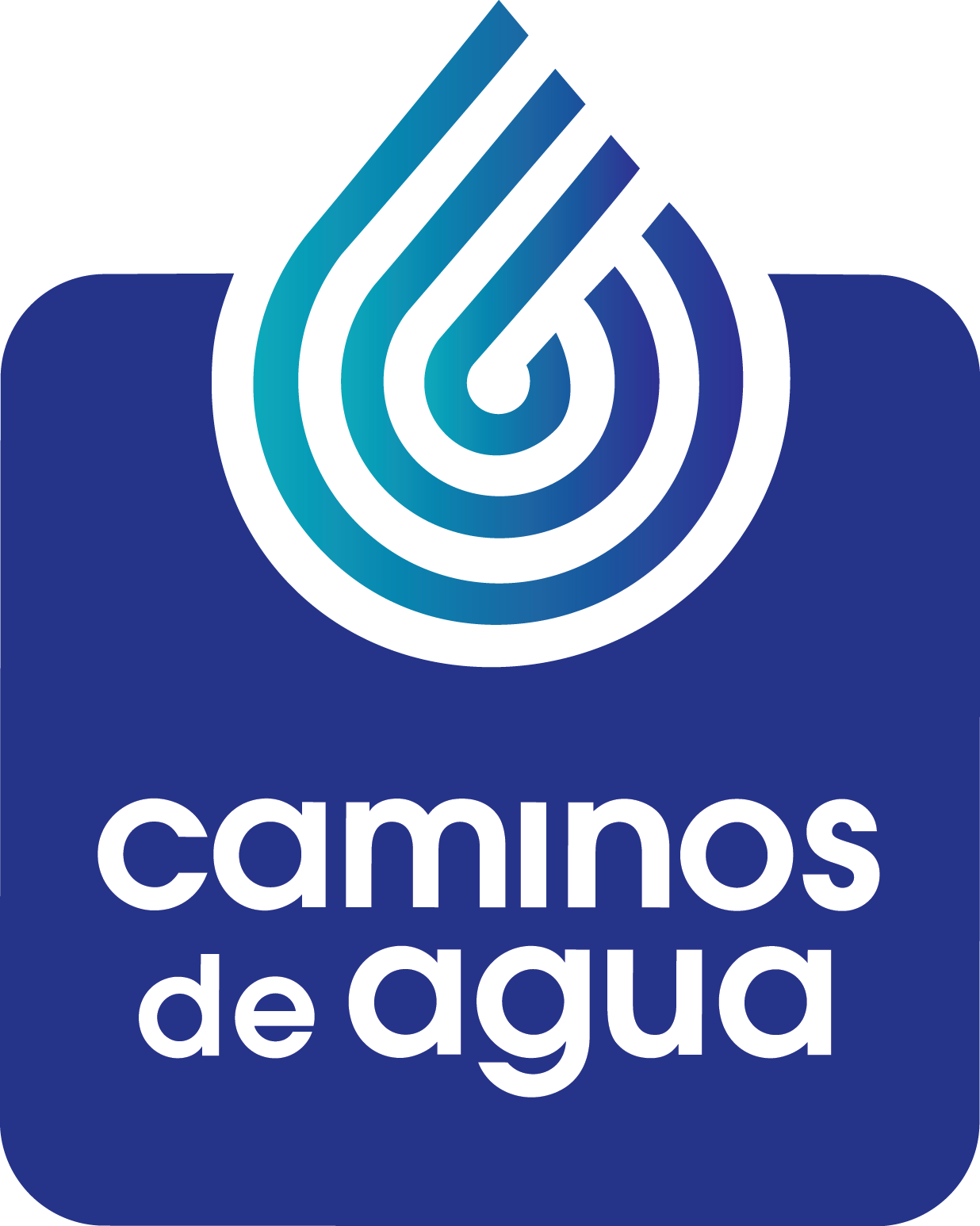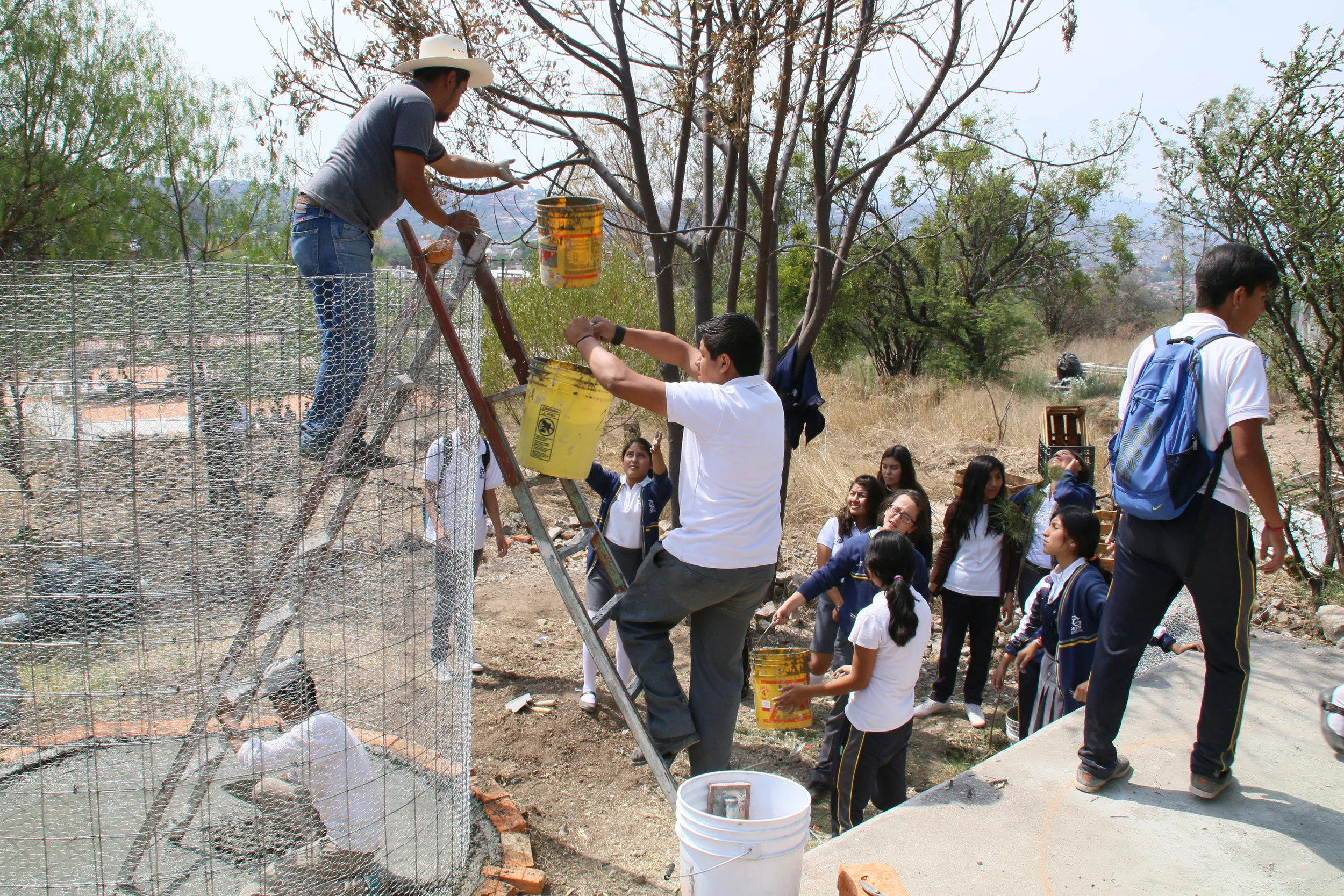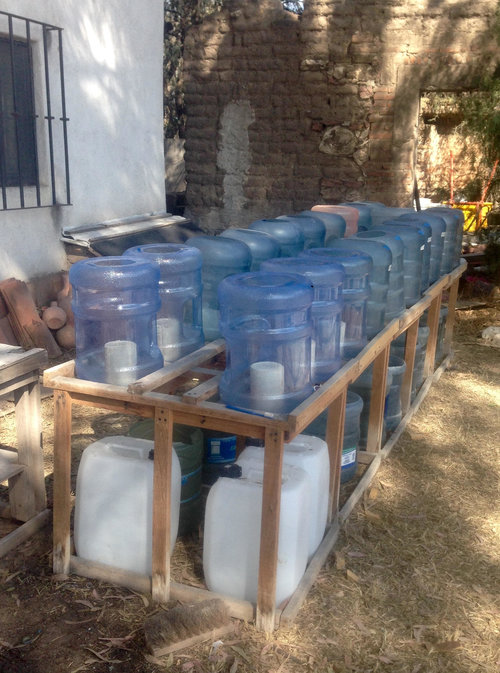Last month, a diverse group came together at Caminos de Agua's field site for a three-day water-filter construction workshop. Participants came from the north (Chihuahua) and south (Chiapas) and from near (San Miguel, Mexico City) and far (the US, Colombia).
Read MoreThe last months were absolutely, positively busy! Read more about our research updates, student-driven projects, our first 'rainjar', well bike-pump, rainwater harvesting calculator, and our evaluation of our ceramic water filter in the field after 3+ years.
Read MoreAs many of our supporters know, the Independence Aquifer region in Central Mexico where Caminos de Agua works is in a permanent state of decline and contaminated with dangerous levels of naturally-occurring arsenic and fluoride, which is leading to irreversible health impacts on long-term users.
Read MoreCaminos de Agua recently intensified its research on how to remove arsenic from heavily polluted groundwater. Martijn Eikelboom, our Dutch volunteer working on his thesis research, began a new round of experiments in march and is finalizing his research this week.
Read MoreThese are the words of Saúl reflecting on his trip to Chiapas as part of his JWH initiative leadership prize.
Read MoreThis report was written originally for our Global Giving campaign. To date, we have raised $23,434 raised of our $31,060 goal.
Read MoreCaminos de Agua recently completed a three-week educational module with 99 students at CBTis no. 60 school in San Miguel de Allende. The program was funded by Lloyd's of London and included both theoretical and practical components. The students spent three days in the classroom learning about local water issues.
Read MoreCaminos de Agua celebrated earth day (April 22) by building a new rainwater harvesting system never seen before in San Miguel de Allende. We organized the event at our field site near Atotonilco to showcase a low-cost option for rainwater harvesting while raising awareness about local water issues.
Read MoreAfter several weeks of design and two days of installation in the field, the community of La Onza can now pump water directly from their shallow well into a nearby tank. Water in the community of La Onza is very scarce in general and water in their deep well is too contaminated with arsenic and fluoride to be safe for consumption (see Caminos de Agua’s water quality monitoring map for details).
Read MoreLocal high schoolers take water issues into their own hands... Caminos de Agua, in partnership with El Maíz Más Pequeño A.C. and Fundación Gonzalo Río Arronte, ran a workshop to construct a ferro-cement rainwater harvesting cistern at Bachillerato SABES Cerritos school in Guanajuato, over 5 days in February 2017.
Read MoreThe letter that follows is the quarterly report that Caminos submits to the Globalgiving Platform. Read the original report and see more photos here.
Read MoreCaminos de Agua was privileged to be the beneficiary of the San Miguel de Allende Writers' Conference "Write for Change" event, featuring author Naomi Klein this past Sunday.
Read MoreThis year began with good news: staff member Casilda Barajas was awarded a grant by the Popular Cultures of Guanajuato Program (PACMYC 2017) to pilot the construction of a tower woven with local natural fibers that can function as a method of capturing air water, specifically dew.
Read MoreOn February 7, 2017 the Caminos de Agua Staff had a staff retreat to review our goals and work objectives for the current year.
Read MoreMany people ask us, “How much rainwater do I really need to collect?” Each household’s water use is different. It depends on family size, location, and regular activities. People use rainwater for various purposes: some only for drinking, others for washing their car, watering their plants, or feeding their animals. Water use varies greatly around the globe.
Read MoreAfter three and a half years of continued use in community homes, we recently had the opportunity to return to our first pilot communities - Juan Gonzalez and La Cienega - where we installed 68 filter systems in community homes and schools.
Read MoreCaminos de Agua (Caminos) has a growing research and development team. Our staff and volunteers are working on various projects from filter development, to rainwater systems, to improvised machinery. This update highlights a few of our technical projects.
Read MoreAs 2016 draws to a close, Caminos de Agua is proud to share our Year in Review Report. Take a moment to celebrate with us our impact on safe, healthy and sustainable water solutions.
Read MoreCaminos de Agua led a training at the end of November for four rural communities in San Luis de la Paz (Llano Verde, Arenal de Arriba, La Escoba, and Arenal de Abajo). Some of these communities have almost no access to water (only 200 liters once or twice a month).
Read MoreAs you may know, in 2016 Caminos de Agua expanded its water quality monitoring campaign to include urban areas of San Miguel de Allende. In conjunction with Texas A&M University and the University of Guanajuato, we performed hundreds of tests in 27 different sites throughout the urban center.
Read More







